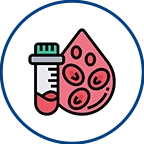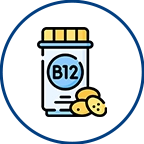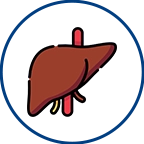What All You Need To Know About Tuberculosis

Tuberculosis (TB) is an ancient and highly contagious bacterial infection caused by Mycobacterium tuberculosis. While significant progress has been made in TB prevention and treatment, it remains a global public health concern. This blog will explore essential information about tuberculosis, including its causes, symptoms, transmission, prevention, and treatment.
What Causes Tuberculosis?
The bacteria that causes TB is Mycobacterium tuberculosis. Even though the lungs are the most afflicted organs, the brain, spine, and kidneys may also be affected.
Home Sample Collection
How is Tuberculosis Transmitted?
TB is primarily transmitted through the air when an infected person with active TB disease coughs, sneezes, or talks. People in close contact with the infected individual are at higher risk of contracting the disease. Shaking hands or exchanging utensils are not casual contact that might spread the disease.
What Are the Symptoms of Tuberculosis?
TB symptoms can vary depending on the stage of the disease. Common symptoms include persistent cough (often with blood-tinged sputum), fever, night sweats, fatigue, and unintentional weight loss. Symptoms of extrapulmonary TB, affecting other organs, depend on the area affected.
Types of Tuberculosis
Latent TB Infection (LTBI): Some individuals can have TB bacteria in their bodies but not be sick. This is known as latent TB infection. They do not exhibit symptoms and cannot transmit the disease.
Active TB Disease: People with active TB have symptoms, and the bacteria multiply in their bodies. They can transmit TB to others.
How is Tuberculosis Diagnosed?
TB diagnosis typically involves a combination of tests, including chest X-rays, sputum tests, and blood tests. More testing, like a CT scan or a biopsy, can be required if TB is suspected.
Tuberculosis Treatment
TB is treatable and curable with antibiotics. The standard treatment involves a combination of antibiotics taken for several months. It is crucial to complete the entire course of treatment to prevent drug resistance.
Drug-Resistant Tuberculosis
Drug-resistant TB strains have emerged due to incomplete or inadequate treatment. These strains do not respond to standard antibiotics and require specialized, longer-term treatment.
TB prevention includes:
Vaccination: The vaccination against Bacillus Calmette-Guérin (BCG) is available in many countries and can help prevent severe forms of TB in children.
Infection Control: Adequate ventilation, wearing masks, and practising good respiratory hygiene can reduce the risk of TB transmission.
Screening and Treatment: Identifying and treating latent TB infections can prevent the progression to active disease.
Avoiding Close Contact: Reducing close contact with individuals who have active TB disease can lower the risk of transmission.
TB and HIV
People with HIV are more susceptible to TB, and TB is a leading cause of death among people with HIV/AIDS. Early detection and treatment are essential for those with co-infection.
Global Impact of Tuberculosis
TB remains a significant global health issue, with millions of new cases and deaths yearly. Efforts to control and eliminate TB include early diagnosis, effective treatment, and improved public health measures.
Conclusion:
Tuberculosis is a severe infectious disease that has affected humans for centuries. While there has been significant progress in its diagnosis and treatment, it continues to be a global health challenge. Understanding the causes, symptoms, transmission, and prevention measures is crucial for individuals and communities in the fight against tuberculosis. Early detection, prompt treatment, and public health efforts are essential in reducing the burden of this disease worldwide. If you suspect you have TB or have been exposed to someone with TB, seek medical attention promptly to receive appropriate care and prevent further transmission.
Frequently Asked Questions
What is tuberculosis (TB), and how is it caused?
Mycobacterium tuberculosis is the germ that causes TB, a bacterial illness. Aside from the lungs, other organs may also be affected by it.
How is tuberculosis transmitted?
TB is primarily transmitted through the air when an infected person with active TB disease coughs, sneezes, or talks. It is not spread through casual contact.
What are the common symptoms of tuberculosis?
Common symptoms of TB include a persistent cough (often with blood-tinged sputum), fever, night sweats, fatigue, and unintentional weight loss. Depending on the infection's stage and location, symptoms might change.
What's the difference between latent TB infection (LTBI) and active TB disease?
When a person has a latent TB infection, the TB germs are present in their body, but they do not show any symptoms and cannot spread the illness. Active TB disease is when the bacteria multiply, causing symptoms, and can be sent to others.
How is TB diagnosed?
TB is diagnosed through chest X-rays, sputum tests, blood tests, and sometimes additional imaging or biopsies.
Can tuberculosis be cured?
Yes, tuberculosis is treatable and curable with antibiotics. Several months' worth of antibiotics are usually required for treatment. To avoid medication resistance, the whole course of treatment must be followed.
What is drug-resistant tuberculosis, and how is it treated?
Drug-resistant TB strains do not respond to standard antibiotics. Treatment for drug-resistant TB requires specialized, longer-term antibiotic regimens under the guidance of a healthcare provider experienced in TB management.
How can tuberculosis be prevented?
TB prevention includes vaccination (BCG vaccine), infection control measures (ventilation, mask-wearing, respiratory hygiene), screening and treating latent TB infections and avoiding close contact with individuals with active TB disease.
Is there a connection between TB and HIV/AIDS?
Yes, people with HIV/AIDS are more susceptible to TB, and TB is a leading cause of death among individuals with HIV/AIDS.
Book Your Slot
Our Locations Near You in Hyderabad
3KM from Banjara Hills
1.9KM from Yusufguda
3KM from Madhura Nagar
5KM from Shaikpet
Profiles
- Cardiac Risk Profile
- Pituitary marker Profile
- Rheumatoid Arthritis Profile
- Dengue Fever Panel
- Lung Cancer Panel 1 Complete Molecular
- Gastroenteritis Screening Panel
- Thyroid Profile (T3,T4,TSH), Serum
- Pancreatic Marker Profile
- STD profile
- Androgen Profile
- Lipid Profile, Serum
- Pancreatic(acute)Profile
- PCOD Profile
Radiology
Pathology Tests
- Glucose Fasting (FBS),Sodium Fluoride Plasma
- Creatinine, Serum
- Glycosylated Hemoglobin (HbA1C)
- Vitamin B12 (Cyanocobalamin), Serum
- Thyroid Stimulating Hormone (TSH) Ultrasensitive, Serum
- Complete Urine Examination (CUE), Urine
- Liver Function Test (LFT),Serum
- Dengue (IgG & IgM), Serum
- Dengue Antigen (Ns1) Rapid, Serum
- C-Reactive Protein (CRP), Serum
- Widal (Slide Method), Serum
- Total IgE, Serum




